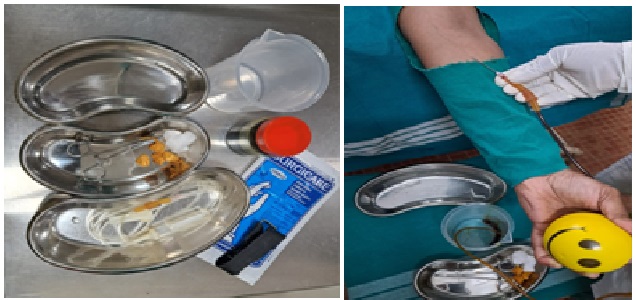Effect of Siravedha in the Management of Viswachi with special reference to Cervical Radiculopathy
Abstract
Radiculopathy, commonly referred as pinched nerve, refers to a set of conditions in which one or more nerves are affected and their functioning is hampered. Cervical radiculopathy is a clinical condition resulting from compression of nerve roots due to disc herniation or degenerative stenosis which leads to neck pain, numbness and radiating arm pain in the distribution of the affected nerve root. Often this radicular pain is accompanied by motor or sensory disturbances also. The main treatments available are use of non-steroidal anti-inflammatory drugs, epidural steroid injection and surgery in the last stages. But the side effects of NSAID’s, incomplete neurologic recovery, loss of full cervical range of movement and surgical complications are the main hurdle in the management of cervical radiculopathy. In Ayurvedic classics, clinical picture of cervical radiculopathy can be explained under the heading of Viswachi. It is a Vatavyadhi mainly affecting the Kandaras leading to restricted movements and loss of function of upper limb. At present, there is no specific treatment procedure, which can offer quick relief of pain and other associated symptoms of cervical radiculopathy. Acharya Susruta mentioned Siravedha in the management of Viswachi. It is one of the most effective methods of Rakthamoksha by which vitiated Doshas can be eliminated in a faster way. In the present study, 150ml of blood was withdrawn from corresponding cephalic vein as a onetime procedure. Assessments were done before procedure, immediately after procedure, on 7th, 14th, 21st and 28th day after procedure. The results showed Siravedha is an effective treatment procedure in the management of Viswachi.
Downloads

Copyright (c) 2023 International Journal of Ayurveda and Pharma Research

This work is licensed under a Creative Commons Attribution-NonCommercial-ShareAlike 4.0 International License.






